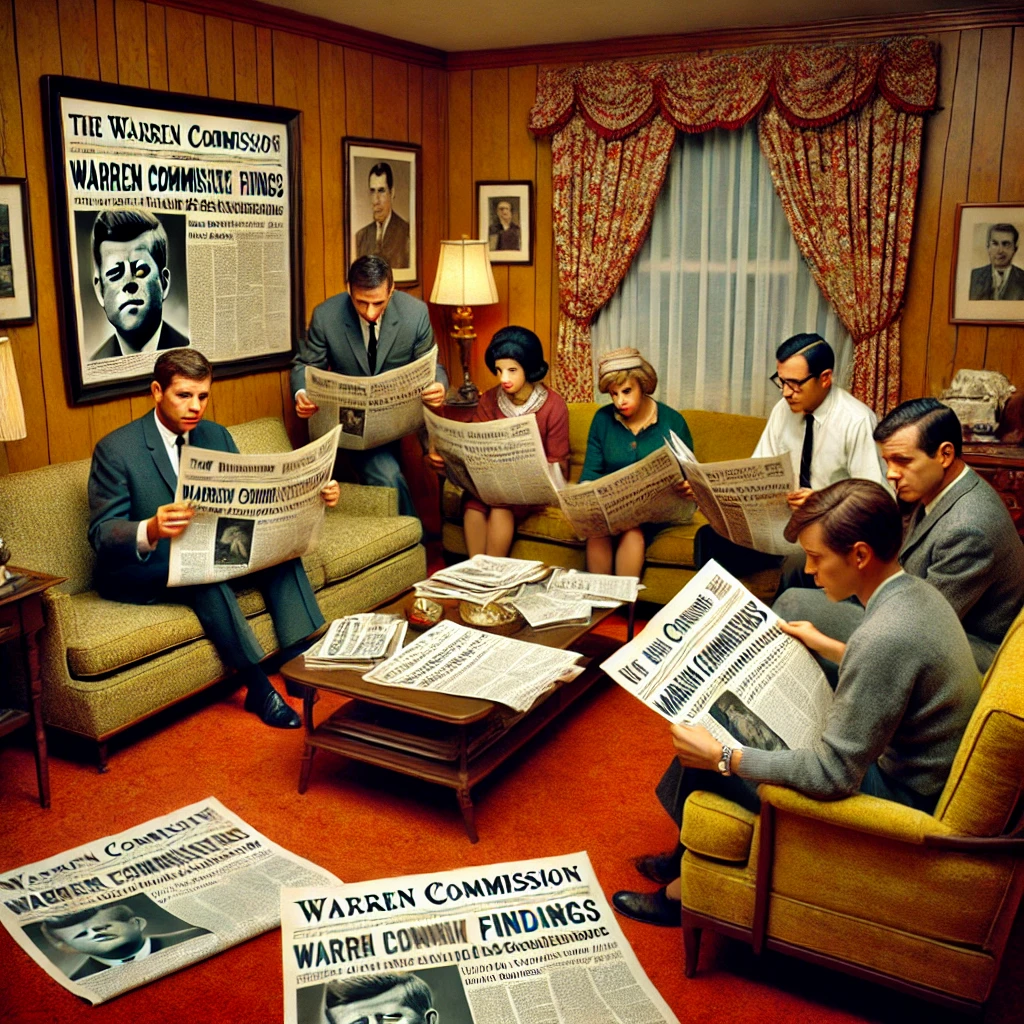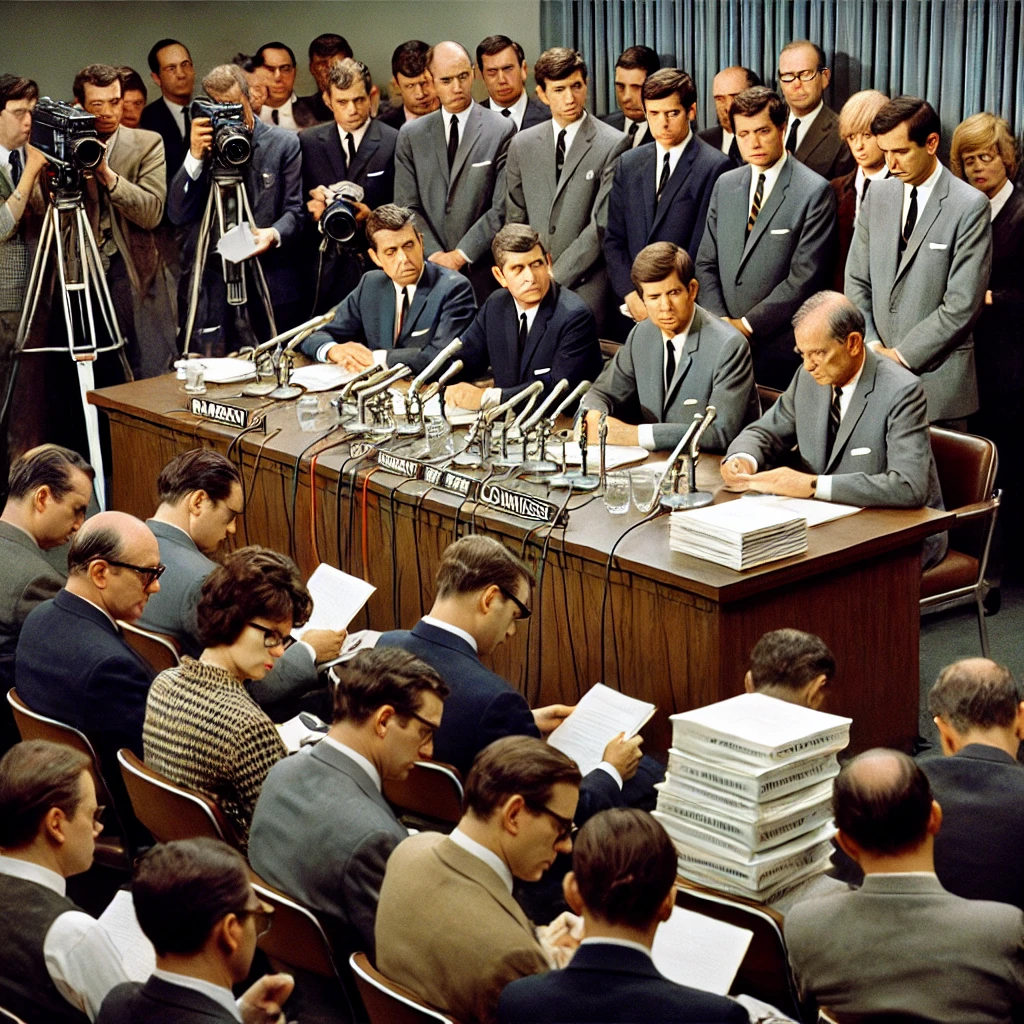On September 27, 1964, the Warren Commission, tasked with investigating the assassination of President John F. Kennedy, released its findings to the public. This comprehensive report aimed to clarify the events surrounding Kennedy’s assassination on November 22, 1963, in Dallas, Texas. The Commission’s conclusions were pivotal in shaping the narrative of one of the most shocking events in American history and have had lasting implications for public trust in government institutions.

The Formation of the Warren Commission
The Warren Commission was established by President Lyndon B. Johnson just days after Kennedy’s assassination. Comprised of prominent figures, including Chief Justice Earl Warren, the Commission was charged with investigating the circumstances of the assassination, examining evidence, and determining whether Lee Harvey Oswald acted alone. The urgency of the investigation reflected the nation’s need for answers amidst rampant speculation and conspiracy theories.
As the Commission began its work, it faced immense pressure to deliver a clear and definitive conclusion. Public interest was at an all-time high, with numerous theories circulating about the assassination, including potential involvement by organized crime, foreign governments, and other conspirators. The Commission’s findings would not only address these theories but also aim to restore faith in the American political system.

Key Findings of the Report
The Warren Commission’s report concluded that Lee Harvey Oswald acted alone in the assassination of President Kennedy, firing three shots from the sixth floor of the Texas School Book Depository. The report detailed the timeline of events, the ballistic evidence, and the autopsy findings. It also examined Oswald’s background and motivations, ultimately portraying him as a troubled individual rather than a pawn in a larger conspiracy.
Despite its thoroughness, the report was met with skepticism from various segments of the public. Critics argued that the Commission had overlooked crucial evidence and failed to consider alternative explanations for the assassination. This skepticism laid the groundwork for a multitude of conspiracy theories that persist to this day, questioning the official narrative and the Commission’s credibility.
Public Reception and Controversy
The release of the Warren Commission’s report generated significant public interest and debate. While many accepted its conclusions, others remained unconvinced, fueling discussions about transparency and accountability in government. The report’s finding that Oswald acted alone was particularly contentious, with some experts and citizens believing that the evidence was insufficient to support such a conclusion.

The controversy surrounding the Commission’s findings raised important questions about the role of governmental investigations in addressing public concerns. The perceived lack of transparency and thoroughness contributed to a growing distrust in government institutions, a sentiment that has continued to evolve over the decades.
Lasting Impact on American Society
The legacy of the Warren Commission extends far beyond its immediate findings. The investigation prompted a series of discussions about the effectiveness of governmental inquiries and the need for independent oversight in high-stakes investigations. The Commission’s work has been cited in discussions about how best to investigate significant national tragedies, shaping the framework for future inquiries, such as the 9/11 Commission.
Moreover, the public’s response to the Warren Commission’s report reflects broader societal changes in attitudes toward authority and government accountability. The doubts and controversies surrounding the findings laid the groundwork for an era of skepticism regarding official narratives, a sentiment that remains prevalent in contemporary discourse.
Cultural Reflections and Media Portrayal
The assassination of President Kennedy and the subsequent Warren Commission report have been subjects of extensive cultural reflection. Numerous films, documentaries, and books have explored the events surrounding the assassination and its aftermath. These portrayals often grapple with the complexity of the situation, presenting varying perspectives on the Commission’s findings and the implications for American society.
The release of the Warren Commission’s findings on September 27, 1964, marked a significant moment in American history. The report aimed to provide clarity on the assassination of President Kennedy and restore public trust in government institutions. While it achieved some of its goals, the Commission’s conclusions have continued to spark debate and skepticism, shaping the discourse around government accountability and transparency. As we reflect on this pivotal event, we recognize its lasting impact on American society, the ongoing search for truth, and the importance of critically examining the narratives that shape our understanding of history.
